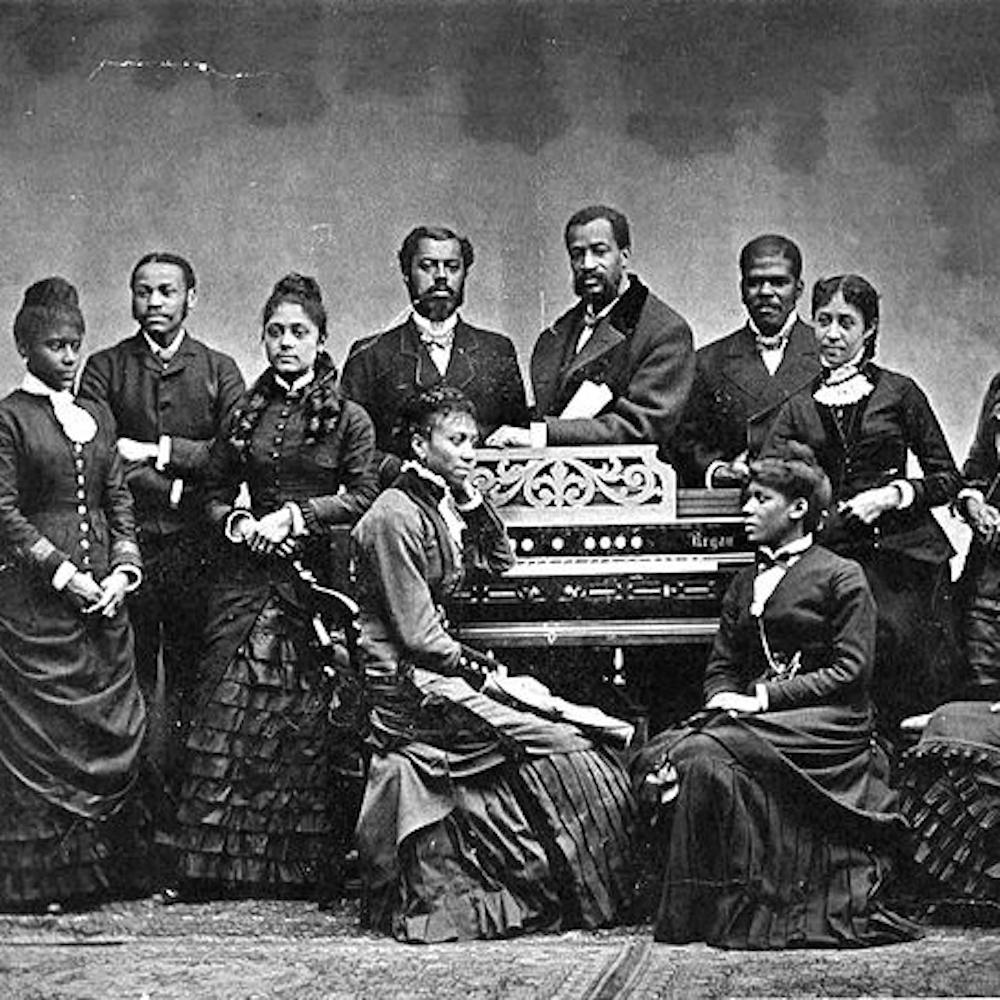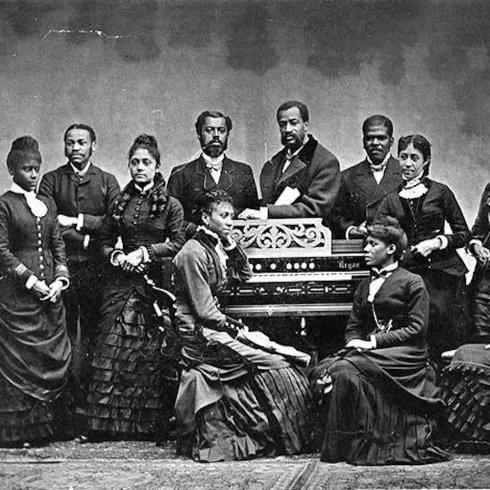Music and Migration: PostClassical Ensemble
The Spiritual in White America

PostClassical Ensemble examines the transformation of black spirituals into songs for the white concert stage through the musical adaptations and arrangements by composer Harry Burleigh. Readings of W.E.B Du Bois, Langston Hughes, and Zora Neale Thurston explore the tensions and questions of the fate of the spiritual in the context of the Harlem Renaissance.
Program
Beginning in 1913, Harry Burleigh (a New York protégé of Antonín Dvořák) began to transform black spirituals into songs for the white concert stage. Marian Anderson and Paul Robeson triumphantly sang Burleigh’s Deep River—and it’s still sung today. But during the Harlem Renaissance, Langston Hughes and Nora Zeale Hurston worried about a “flight from blackness.”
This performance is in conjunction with the Phillips’s exhibition The Warmth of Other Suns: Stories of Global Displacement.
“One of the country’s most innovative music groups.” — Phillip Kennicott, The Washington Post (about PCE)
Click here to learn more about the program.
“THE SPIRITUAL IN WHITE AMERICA”
Kevin Deas, bass-baritone
Joseph Horowitz, piano
The Washington National Cathedral Choir conducted by Angel Gil-Ordonez
Spiritual arrangements by Harry Burleigh and Nathaniel Dett
Readings from W. E. B. DuBois, Alain Locke, Langston Hughes, and Zora Neale Hurston
About the Artists
Kevin Deas is one of America’s leading concert singers. As Resident Artist of PostClassical Ensemble, he is the central performer in PCE’s “Deep River: The Art of the Spiritual,” a Harry Burleigh celebration that tours (and was most recently produced at Virginia Tech). Also with PCE he premiered the “Hiawatha Melodrama,” which explores the “American accent” of Dvorak’s New World Symphony; the Naxos recording was named one of the best CDs of the year by Minnesota Public Radio. Deas is closely associated with the concert works of Bach, Beethoven, and Handel. He is also widely acclaimed for his interpretation of George Gershwin’s Porgy, a role he has sung with major orchestras the world over.
Angel Gil-Ordonez is Music Director of PostClassical Ensemble. Formerly Associate Conductor of the National Orchestra of Spain, he also serves as Principal Guest Conductor of New York’s Perspectives Ensemble, Music Director of the Georgetown University Orchestra, and advisor for education and programming for Trinitate Philharmonia, a program in León, Mexico, modeled on Venezuela’s El Sistema. In 2006 the King of Spain bestowed upon Gil-Ordóñez the Royal Order of Queen Isabella, the country’s highest civilian decoration, for advancing Spanish culture around the world.
Joseph Horowitz is Executive Director of PostClassical Ensemble. Long a pioneer in contextualized symphonic programing, he served as Executive Director of the Brooklyn Philharmonic at BAM and has since served as an artistic advisor to dozens of American orchestras, frequently with the support of the NEH. His ten books include Classical Music in America: A History (2005) and Artists in Exile (2008), both Economist best books of the year. He is most recently the author of an essay in the current issue of The American Scholar exploring why classical music in America “stayed white.” His blog, “The Unanswered Question,” is artsjournal.com/uq.
PostClassical Ensemble (PCE), co-founded by Angel Gil-Ordonez and Joseph Horowitz in 2003, is Ensemble-in-Residence at the Washington National Cathedral. Philip Kennicott has called PCE “one of the country’s most innovative musical groups.” An “experimental orchestral laboratory,” PCE explores music in its cultural context. All PCE programing is thematic; most is cross-disciplinary. The Ensemble’s upcoming National Cathedral season comprises three multi-event festivals: “Native America: From Spillville to Pine Ridge” (including musicians from South Dakota’s Lakota Music Project); “The Color of Pomegranates: An Armenian Odyssey” (including an Armenian Film Festival at the National Gallery of Art); and “Why Haydn?” (featuring the pianist Jean-Efflam Bavouzet). Information: www.postclassical.com.
